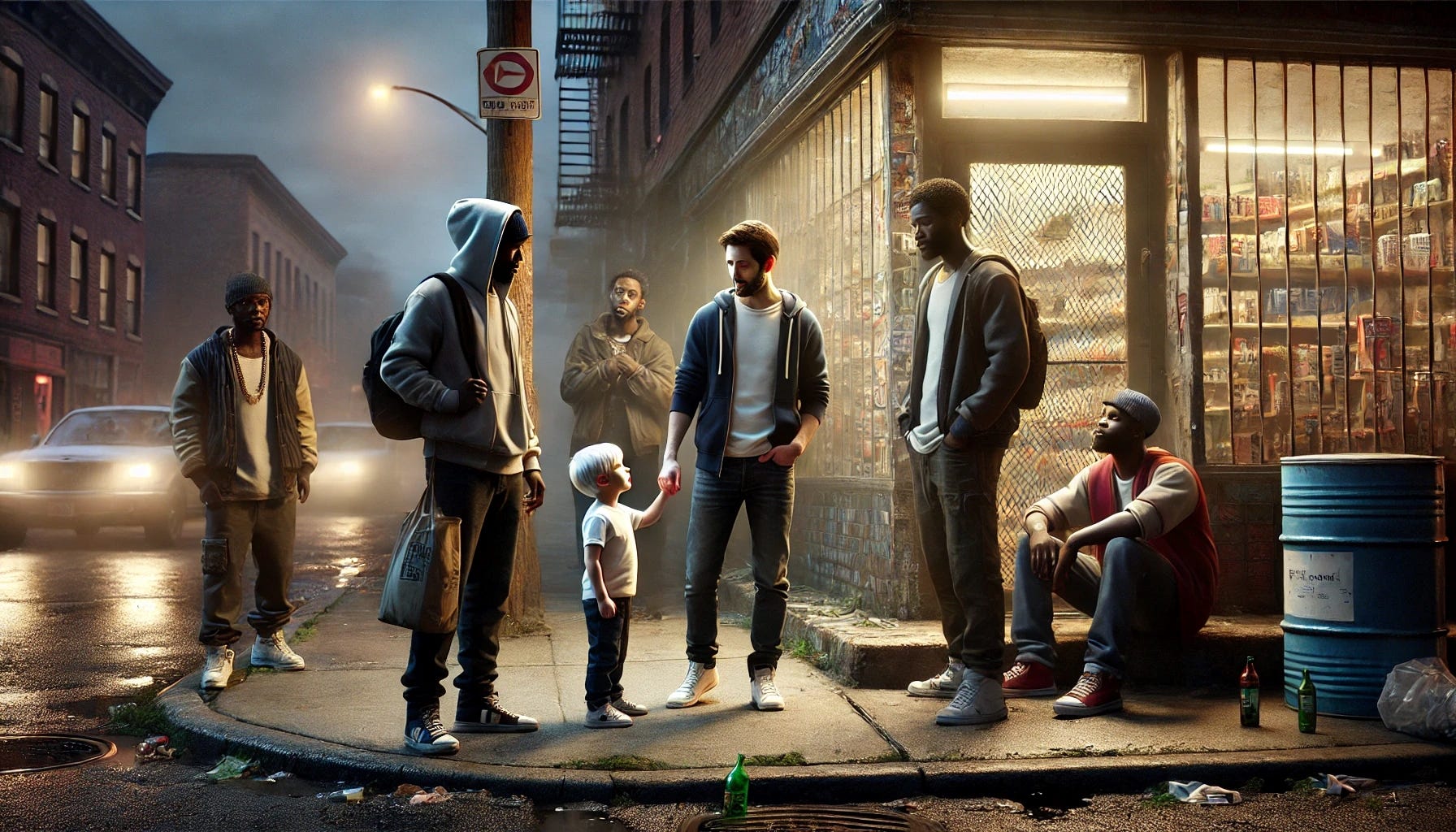MADE FOR YOU AND ME 2: hive Being (Stanzas 2017—part 34)
Let's workshop this stanza sequence about corn chips, the smell of white people, God, art, higher selves, molly, alcoholism, Muslims, prostitution, stress-induced obscenities, strippers, Jesus rapture
stir better angels: ask these corner blacks to watch your kid while you run into the store tuna treats tucked high and low to riddle the cat’s life—a lesson for human depression finding one’s artistic voice through rejecting one's training blooming petals stripped of sexual symbolism sand-mandala wisdom comes from carrying out ways of life knowingly doomed to us they smell like garam masala armpit; to them we smell like sour diary dog paw will the only memory of his mother be of her addiction? lives swallowed by ritual merely aping that world staying the course with the thought “the rest of us don’t seem to think we’re crazy” the instincts of our innermost identity deprived by comforts, we need— just like these unavoidable mirrors (bored killers, purring on our laps— savannah quests (even if only writ small in the Easter eggs of video games) if retired men so easily slip into depression having limited opportunity to do what they have long done, just imagine what becomes of humans unable to exercise the hunter-gatherer drives constituting our base code inborn wisdom has us shoot the horse beyond misery (like a mother giraffe head stomping its injured calf)— yet we thrust our pitchforks at Kevorkian suicide pods even Christian parents never assume, even after years of dead-end searching, that it might have been a rapture event who wins the power struggle when, after her strangled mewls turn into mulish moans of “Hit me!”, you backhand her across the mouth with fair warning: “Don’t ever fuckin tell me what to do, bitch”? rusted machinery slowly reclaimed by nonhuman growth high-traffic apartments, people leaving every two minutes on average drug-induced moments of confessional vulnerability exiting the store without paying in the wake of the armed robbers (but with a “Sorry”) correcting the misspelling on your suicide note first behind an afternoon school bus at a red light, grocery prices have gone too high not to flash leaky tits for faces teasing at the back window in the ecstasies of molly, you think you hear— feel even—the very heartbeat of the found toad, but your beatbox-rendition is the wrong tempo remember when you did not have to leave America to live the American dream: go to Turkey for unsurpassed but affordable health care; go to China for colleges that want you for your genius instead of for your irrelevant self identifications? atheist philosophers, so argued the Catholic bishop, serve a godly role in debunking poisons of idolatry: like that god is some bearded sky father—just one among many beings in what amounts to mere sandbags against a flood of nihilism, she wields academic jargon like a flamethrower: scorching “The Unbearable Whiteness" of forest trails and math tests without guys groping her—shifting and bending her, yanking her, this way and that—for better angles, it turns out she did not really know how to dance that fragile membrane around all of our curated routines joy in watching the proudest decay belonging found in buying invalided home drink deeply (eyed closed) those “boring” stretches between inevitable catastrophes selling sexual services, even if just info, suffices in their sensible eyes to self-identify with pride as whores friends together after a long absence feel wrong to go off into other rooms for the night, let alone to sleep—but they eventually do the dawning of that truth that no divine rule blocks children like you from stepping foot into even the emptiest street to retrieve a ball
This is a portion of an ongoing mosaic poem called Made for You and Me. This portion is from the first installment: hive Being (Stanzas 2016-2020). More specifically, it is from the 2017 portion of that five-part work.








A collection of vivid, thought-provoking snapshots that explore the complexities of human experience, the contradictions of modern life, and the tension between instinct and societal norms. Each line serves as a meditation on the varied dimensions of existence, from the mundane to the profound, often tinged with a sense of irony or dark humor. The poem traverses themes such as depression, memory, survival, and the instincts buried beneath the comforts of contemporary living. It challenges the reader to consider how deeply ingrained behaviors and rituals—whether rooted in cultural training, survival instincts, or the necessity of routine—shape our understanding of identity and belonging.
The work also delves into the conflicts inherent in human nature, such as the struggle between following societal expectations and embracing primal instincts. It touches on the often unnoticed but significant impact of seemingly small actions and decisions on one's mental state and sense of self. The juxtaposition of trivial and significant moments serves to highlight the fragility and unpredictability of life, as well as the ways in which we cope with or avoid confronting deeper existential truths.
The poem’s structure, a series of vivid vignettes, allows for a fragmented yet cohesive exploration of these themes, each line acting as a standalone reflection while contributing to the overall narrative of human struggle, survival, and the search for meaning in a world that often feels disconnected from its own primal roots. The imagery used is both visceral and relatable, making abstract concepts tangible and emotionally resonant.
even Christian parents never assume,
even after years of dead-end searching,
that it might have been a rapture event